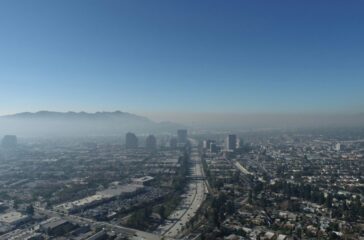Postcard from California: Despite strict regulations, the state still has the nation’s dirtiest air
In the years after World War II, the smog in Los Angeles was so thick that at times people could see no farther than three blocks.
Despite efforts to limit emissions from power plants and oil refineries, the eye-burning, lung-choking blanket of smog remained. Then, in the 1950s, groundbreaking research by a biochemistry professor at the California Institute of Technology, Dr. Arie Haagen-Smit, determined that the main culprit was automobile exhaust.
 EWG
EWG

